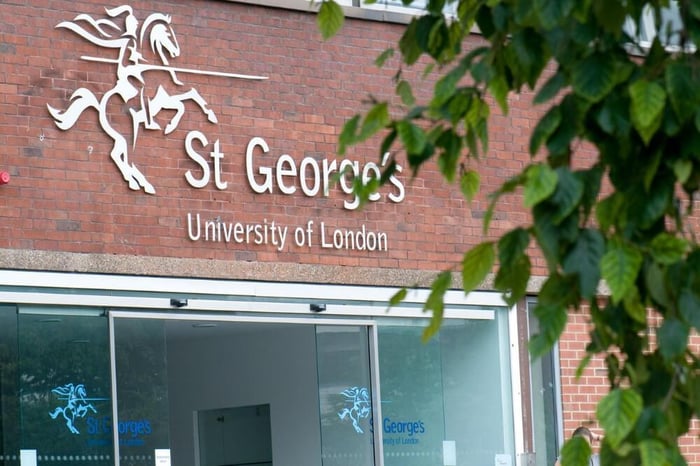
How to Answer: Why Do you Want to be a Doctor?
This video and more is included in our Online Interview Resource!
This is undoubtedly one of the most common interview questions when applying for medicine. Interviewers have already had a look at your grades and your personal statement, but this is the moment where you can shine and show why you personally, with all the qualities you possess want to follow this career path and why you would be excellent at it.
Answering this question well is a crucial component of a successful interview and a subsequent offer to a medical school, so let's figure out how to structure your answers.

Your motivation to pursue medicine
The first step is to ask yourself is, what is the reason behind your decision to study medicine and pursue a medical career? Do you enjoy helping people, do you have an interest in science or do you like to solve problems? Or is it perhaps a combination of all of the above? Is there a particular event in your life that sparked that desire? It is crucial that you sit down and answer this question honestly for yourself and understand how those answers relate more to a career in medicine than, for example, law, or any other degree that entails solving problems and helping people.
If you have always known you wanted to study medicine, what triggered it? Was someone you look up to? A doctor, who inspired you to consider that career for yourself? Did you know anyone who suffered from a condition that made you want to know more about medicine and ignited a desire to follow that path?
There is no right or wrong answer to this question, as long as it is tailored to you and your unique experiences prior to applying for medical school. Make sure by explaining your motivation of becoming a doctor to the interviewers, you give them a glimpse of who you are. Interviewers don’t want to hear a template answer but want to get to know you and decide whether you would be a good fit for their programme. Therefore, showing consideration and authenticity when giving your answer will impress your assessors and make you and your application stand out.
Show understanding towards what the career entails
Understanding and being able to communicate your personal reasons for wanting to pursue medicine are a good start to a successful interview answer but are not enough. You also need to be able to show awareness of what the role entails and what will be expected of you when you become a doctor, and how you are prepared to tackle those responsibilities. You may have a unique and highly inspiring reason of why you want to pursue medicine, but if you don’t show that you’re up to the task, interviewers will not be convinced to offer you a place.
Once you have pinned down your reasons for wanting to embark on this career path, you have a think about what becoming a doctor, and even a medical student, would mean for the remaining aspects of your life. If you have friends or family in medical school or working in healthcare, ask them to give you a candid overview of what their day-to-day life entails and how they cope with it.
The amount of time spent in training, the need to be flexible with working hours, neglect towards other aspects of one’s life, and dealing with stress and burnout are just some of the commonly encountered by-products of working as a doctor. These are commonly overlooked among aspiring applicants who are badly craving that coveted spot in medical school, but it's an important reality to anyone serious about pursuing a career as a healthcare professional. If you want to stand out and give a compelling answer at your interview, you need to consider the challenges that the job comes with, and address them accordingly.

What’s more important, a lot of these challenges tend to surface up already while in medical school, so it’s incredibly relevant that you recognise them and have an idea of how you plan to tackle them if and when they arise. Do you have a de-stressing method before exams? Do you like to go for a run or get together with friends to switch off? Do you have a good support network in the eyes of friends or family or others who are going through the same process?
It’s okay if you’re unsure or your methods change along the way, but it’s crucial that you show understanding and consideration towards these challenges and demonstrate an attempt to provide ways to tackle them.

Be reflective towards your abilities
Lastly, you want to consider how your motivation to become a doctor and your awareness of what the profession entails (in terms of challenges and responsibilities) come together. Evaluate whether the two overlap fully or whether there are any gaps you need to address. This is a good moment in your interview to outline what your strengths and weaknesses are and to demonstrate how you, as an applicant, possess the necessary qualities to excel in the field.
Once you have made a list of your strengths, try and show how they will help you overcome some of the adversities previously discussed. If you are incredibly focused or particularly cool under pressure, what examples of that behaviour can you give from past experiences and how will they help you excel in the goals you have set for yourself?
Equally, you need to be able to recognise where your weaknesses lie and what you can do to overcome them. If your time management is not the best for example, how can that be a threat to a successful career in medicine and what can you do to improve that? Once you have addressed all these aspects, you will have a well-structured and impressively thought-out answer to one of the most challenging questions during your interview.
Remember, practice is crucial for success, so practising with a friend or a family member can further help strengthen your answer and prepare yours for your medical school interview. Ultimately, be confident in your motivation and let your passion for medicine come through in your answer.
Good luck at your interview and if you have any further questions, don’t hesitate to write us at [email protected].




